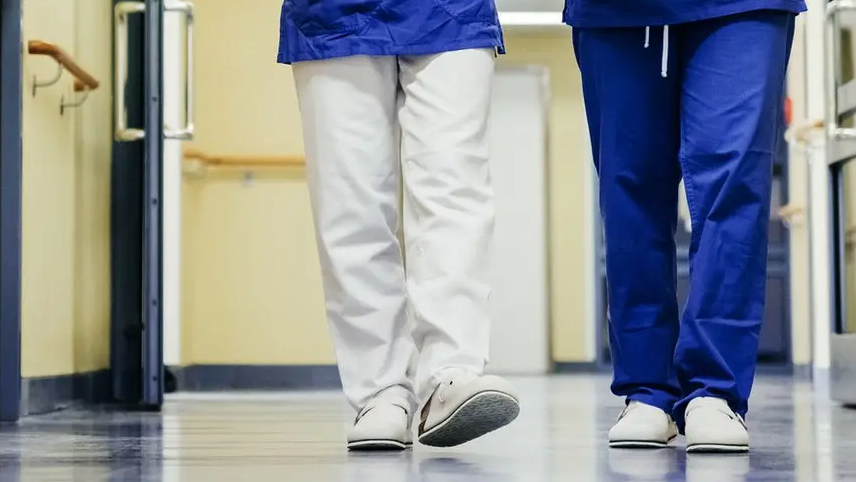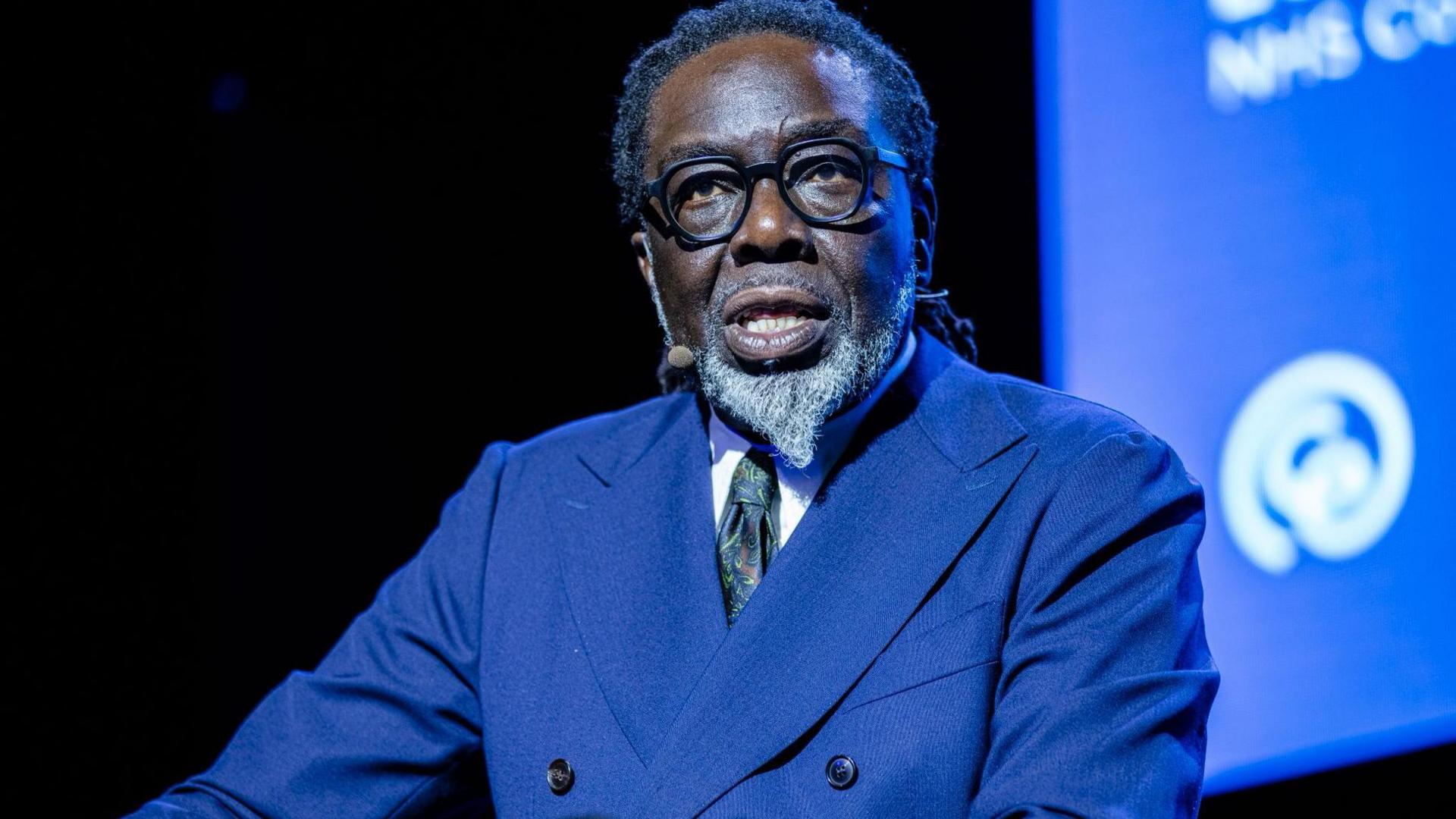'Sometimes I'm on my knees praying for my patients'
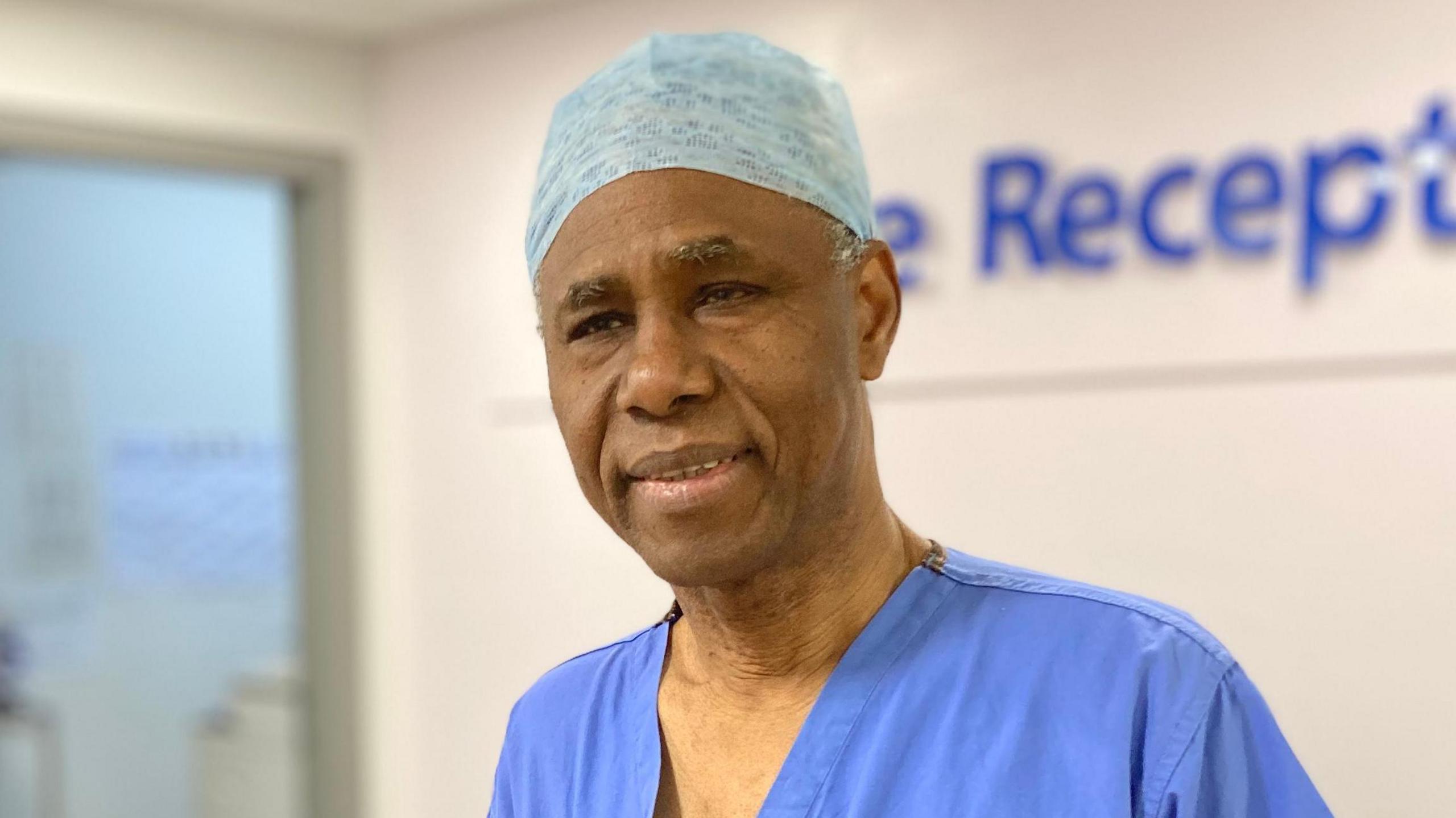
Mr Bankole Akomolafe has served the NHS for more than 30 years
- Published
As part of Black History Month, Hull and the East Riding of Yorkshire's first black consultant vascular surgeon shares his story - the obstacles and challenges he has faced and how his Christian faith has "sustained" him.
Mr Bankole Akomolafe says he "sleeps, eats and drinks" surgery. This dedication to his craft has cost him many a sleepless night.
"Vascular surgery is a very complex detailed speciality," he says.
"The margin of error is very small. If I get it wrong people could lose their limbs or they could lose their life.
"Sometimes when I have a very difficult operation I go into the loo and I'm on my knees praying for my patients.
"Sometimes in the middle of the night I'm going through things in my mind, catching up with techniques. You've always have to have a get out of jail card."
Mr Akomolafe arrived in the UK from western Nigeria in 1991 on a British Commonwealth Scholarship in transplant surgery and with a dream to become a vascular surgeon.
The "high risk and complex" profession involves operating on the veins, arteries and lymphatic vessels.
The father of three says he knew it would not be easy, but was "ready for the challenge".
Through hard work that dream has become a reality and one of his greatest goals is to remain "at the top of my game".
"Keeping up to speed with knowledge, new research, techniques, technology allows me to offer cutting edge surgery for patients," he says.
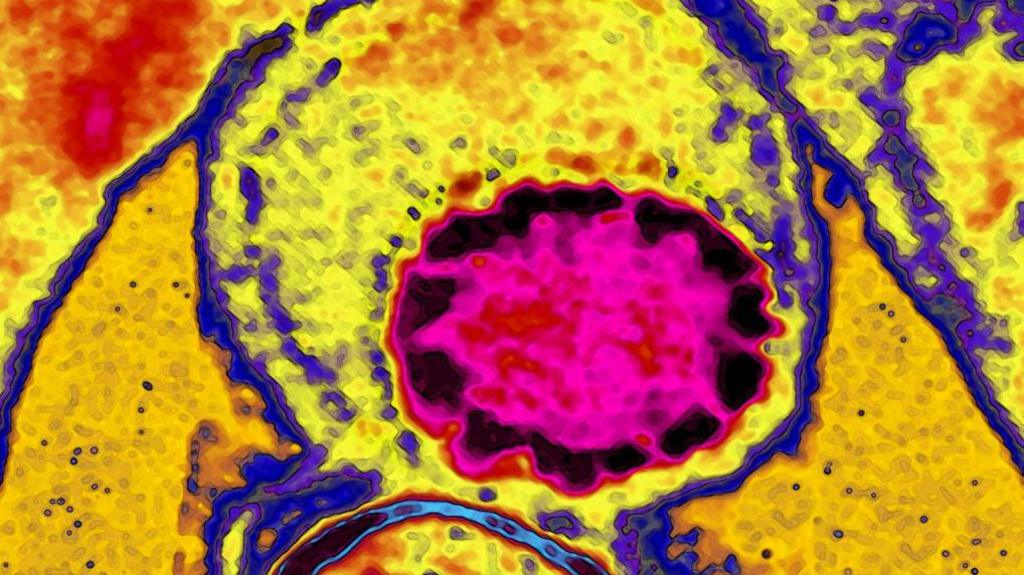
Vascular surgery involves complex procedures including angioplasty as shown in this CAT scan image showing an arterial stent
"The safety of patients is so important. You can't underestimate the importance of thinking this could be a friend of mine, or my mum, brother or sister.
"Before surgery patients will ask 'Doctor am I going to be ok?' I say 'I can't promise you anything, but I can promise you I will do my very best for you'.
"Getting it right the first time. That's all that's going through my mind.
"Everyone looks up to you. The buck stops with you, but sometimes things don't go according to plan.
"At these times, I can say that God has been really faithful because I get the support of my colleagues."
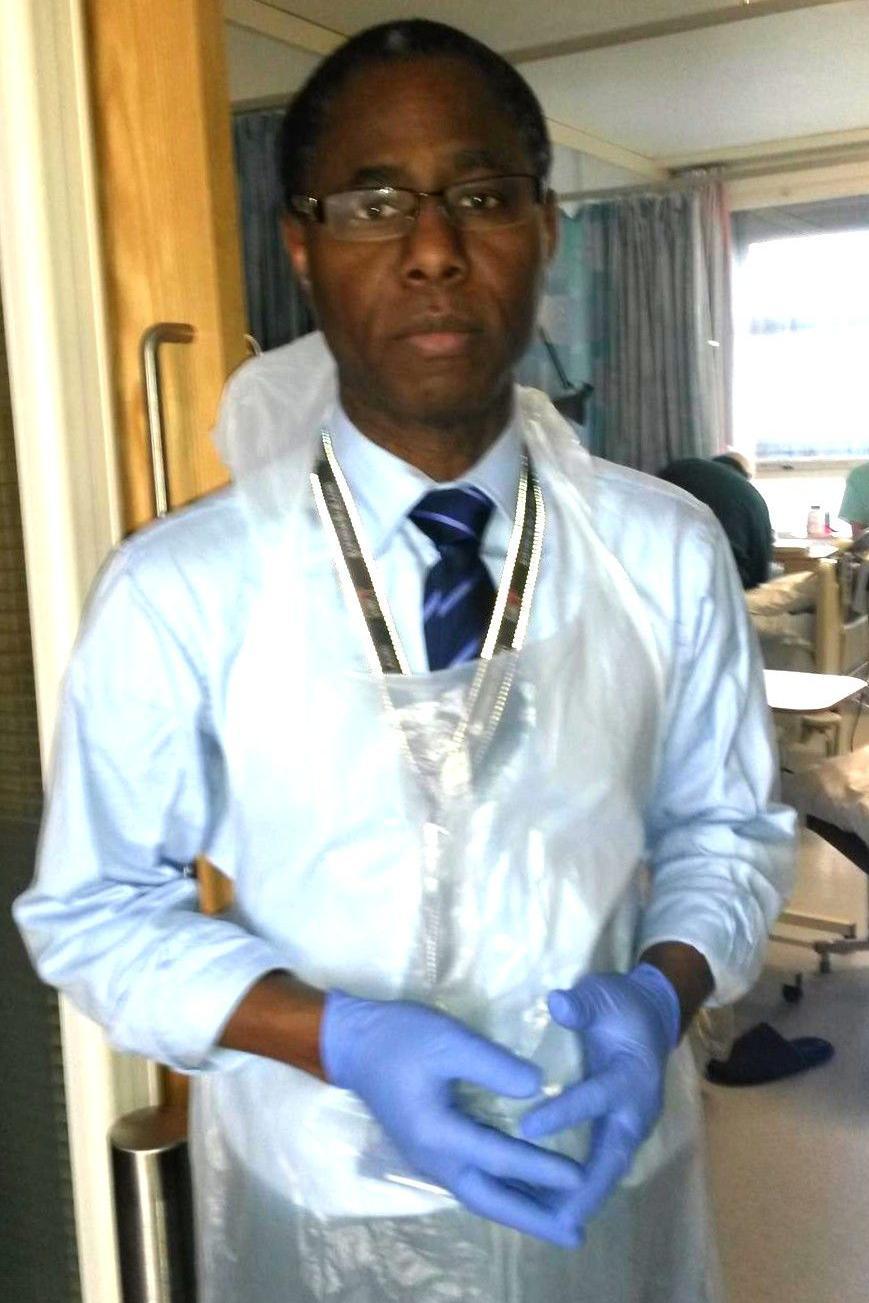
Mr Akomolafe came to the UK in 1991 on a transplant surgery scholarship
Mr Akomolafe is passionate about saving lives but he said "from time to time" he has experienced racism from those he wants to help.
A few years ago, during a hospital ward round Mr Akomolafe said an elderly woman asked if she could replace his name with a racial slur.
"I introduced myself and the patient said I can't pronounce that name. She said can I call you a [racial slur]. I politely said no I don't want you to call me that name.
"I was surprised because I had not expected that. It came out of the blue. I took a moment, then I returned to the ward.
"You just take it on the chin." he added.
The incident was reported to Hull Teaching Hospitals Trust.
'Fearful for safety'
Staff from black and ethnic minority backgrounds make up 4,070 (20%) of the workforce at Hull Teaching Hospitals NHS Trust.
Chief People Officer for NHS Humber Health Partnership, Simon Nearney, said the Trust had a zero tolerance approach to racism.
"They save people's live and if we didn't have those staff we wouldn't be able to provide anywhere near the services we currently provide. We do not stand for racism."
Last summer's, anti-migrant demonstrations in Hull had a "psychological impact on our staff".
"When they're coming to work and leaving work, they were fearful for their safety, for their families," said Mr Nearney.
"These issues are ongoing, it's not on a daily basis, but we have patients coming into hospital with a range of views."
Surgery can be a test of endurance and to help him cope, Mr Akomolafe runs half marathons for charity.
"When I'm running, it refreshes my brain and takes away the pressures of being a surgeon," he says.
After serving the NHS for more than three decades, Mr Akomolafe has transformed the life of many patients.
"It's rewarding to see somebody thinking they're going to die, then they walk out of the hospital alive. People thinking they're going to lose their leg, then they walk out with both their legs.
"I believe I've contributed my little quota to the NHS and it's been a privilege to do it."
Listen to highlights from Hull and East Yorkshire on BBC Sounds, watch the latest episode of Look North or tell us about a story you think we should be covering here, external.
Download the BBC News app from the App Store, external for iPhone and iPad or Google Play, external for Android devices
- Published5 June
